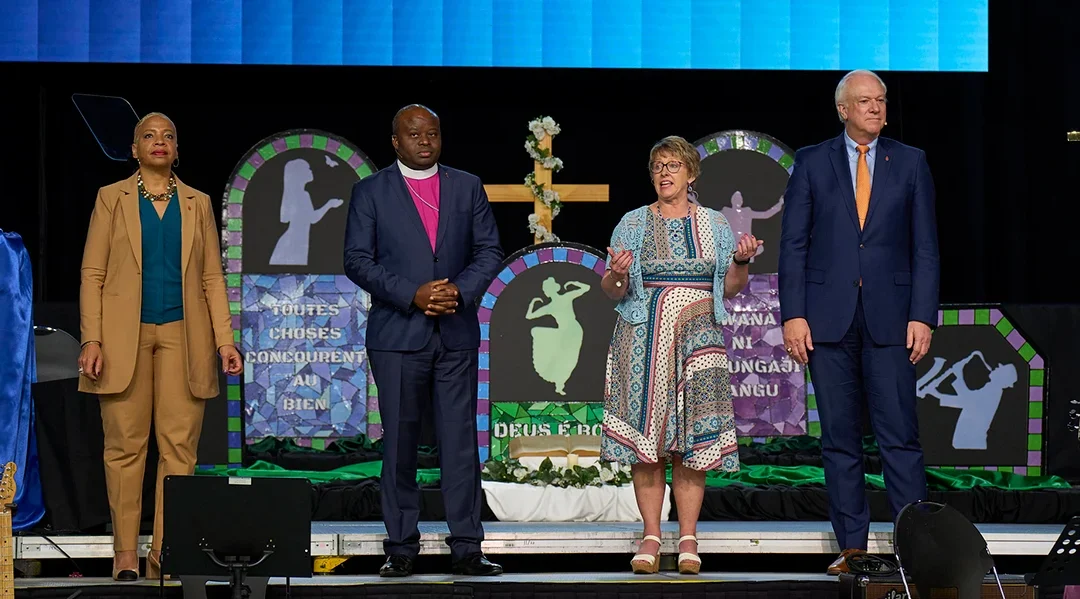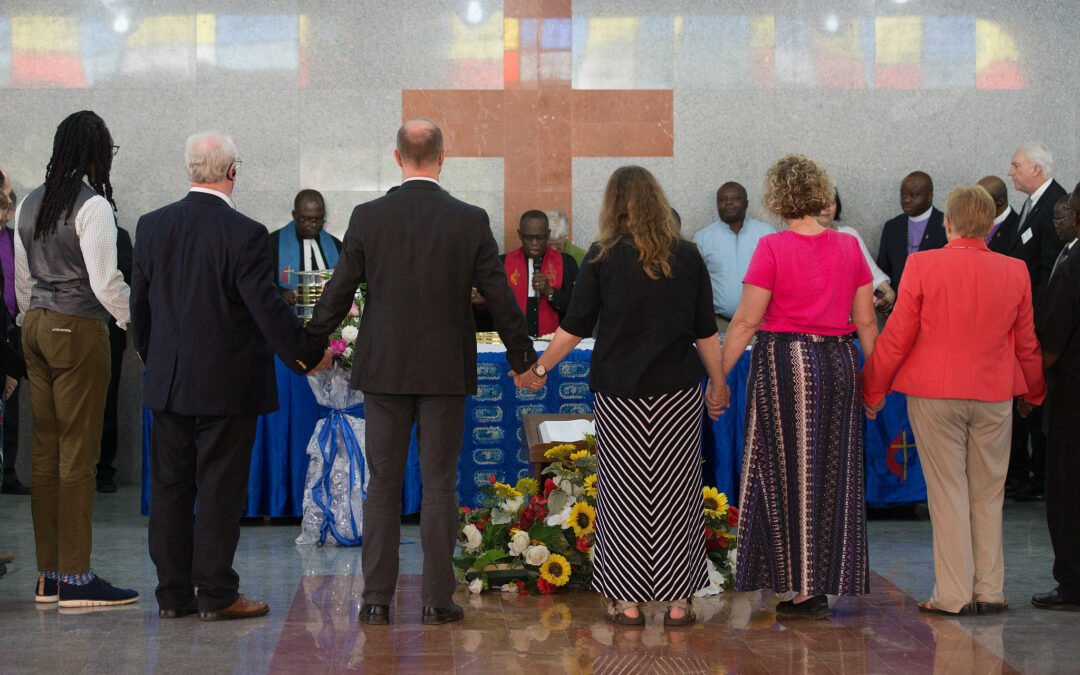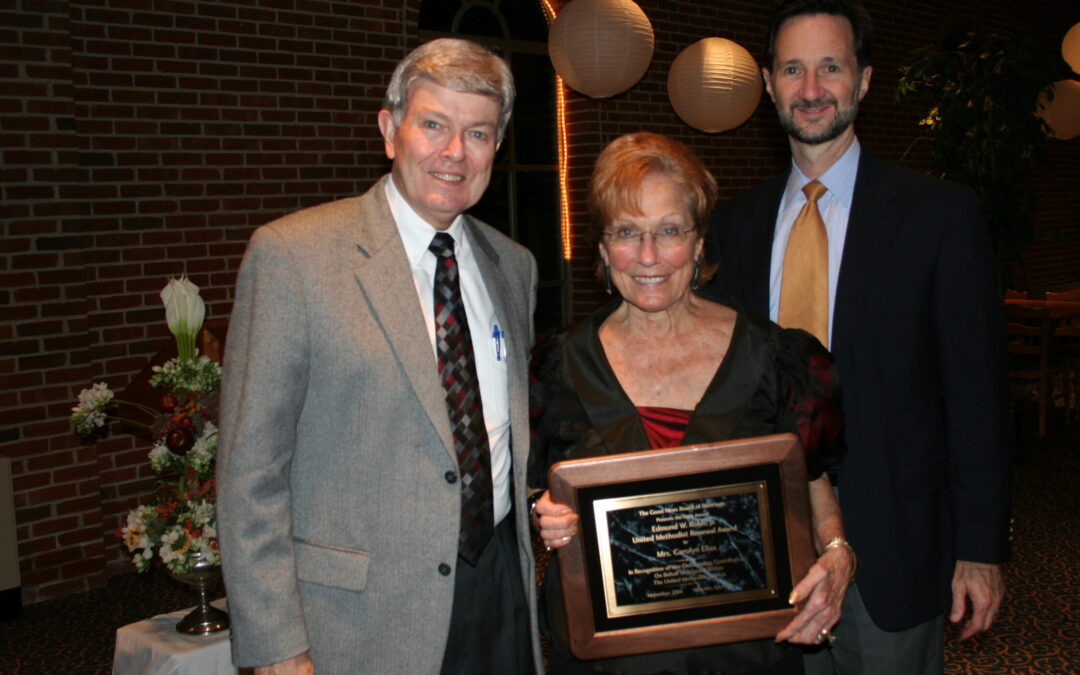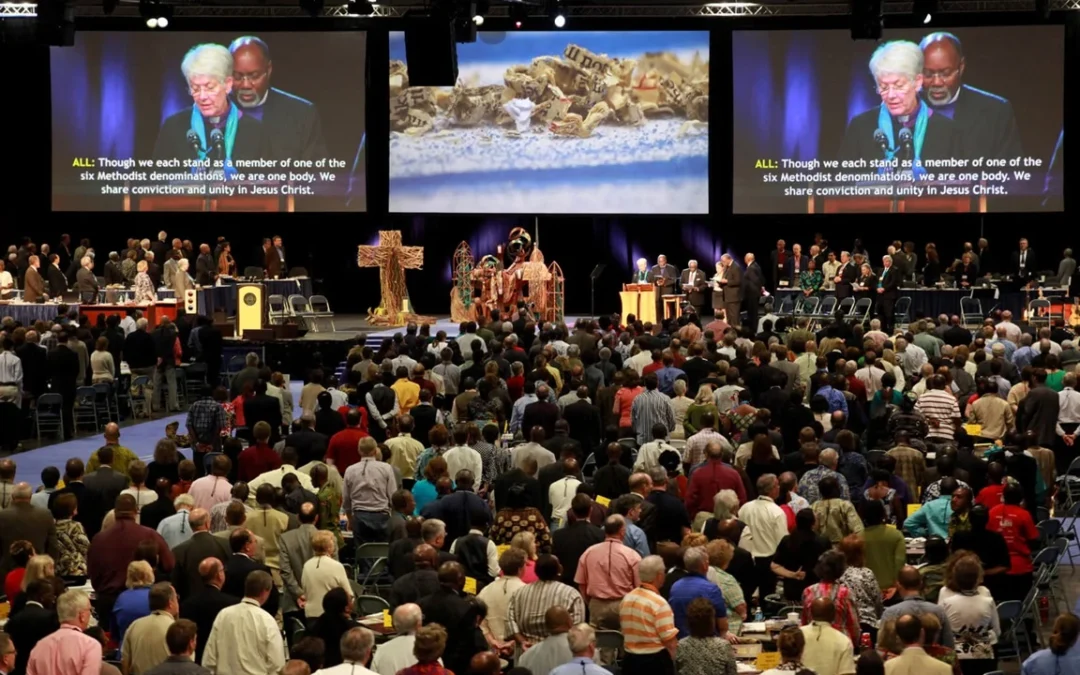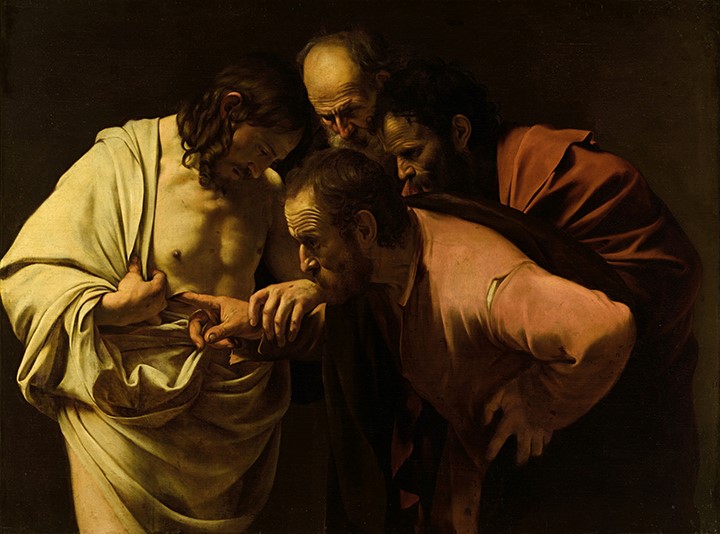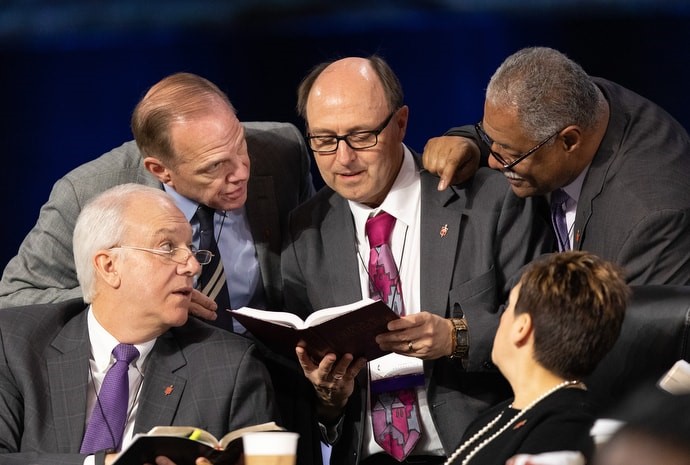Radiant Scars
By Stephen Seamands
The marks of death that God chose never to erase,
The wounds of love’s eternal mark,
When the kingdom comes, with its perfect sons,
He will be known by the scars.
–Michael Card
As its cover story, the March 27, 2000, issue of Newsweek featured “Visions of Jesus: How Jews, Muslims and Buddhists View Him.” Though he is not considered as in Christianity the utterly unique Son of God, the article showed how Jesus is still greatly revered and admired in all the world’s major religions.
Muslims, for example, recognize Jesus as a great prophet. They even believe he was born of a virgin and ascended into heaven – spiritual prerogatives lacking in Mohammed himself, the greatest of all the prophets. In recent centuries, Jews have gained greater admiration for Jesus, viewing him as a reformer within Judaism who sought to liberalize his own religious tradition. His followers mistakenly went on to worship Jesus and establish a new religion, they say – something Jesus himself never intended. At some Jewish seminaries, a course in the New Testament is even required of rabbinical candidates.
Although they find his notion of a single god unnecessarily restrictive, Hindus also view Jesus as a virtuous man. Like Mahatma Ghandi, many are drawn to Jesus because of his compassion for others and his commitment to nonviolence. Some even maintain that when Jesus was a teenager he journeyed to India where he learned Hindu meditation. Later he returned to Palestine and became a Jewish guru.
Buddhists are quick to point out the striking similarities between the stories of Jesus and Buddha. One Zen Buddhist monk maintains Jesus and Buddha are “brothers” who both taught that the highest form of human understanding is universal love. Like Buddha, many regard Jesus as a perfectly enlightened being who sought to help others find enlightenment.
Yet having clearly shown the universal appeal of Jesus by observing him in the mirrors of Jews and Muslims, Hindus and Buddhists, the article had an unexpected conclusion. Instead of suggesting that the universal admiration of Jesus may serve as a bridge in uniting Christianity with the other major world religions, it focused upon the central element in the Christian view of Jesus which creates a stumbling block for them all: his violent death on the cross. As the article put it,
“Clearly, the cross is what separates the Christ of Christianity from every other Jesus. In Judaism there is no precedent for a Messiah who dies, much less as a criminal as Jesus did. ln Islam, the story of Jesus’ death is rejected as an affront to Allah himself. Hindus can accept only a Jesus who passes into peaceful samadhi, a yogi who escapes the degradation of death. The figure of the crucified Christ, says Buddhist Thich Nhat Hanh, ‘is a very painful image to me. It does not contain joy or peace, and this does not do justice to Jesus.’ There is, in short, no room in other religions for a Christ who experiences the full burden of mortal existence – and hence there is no reason to believe in him as the divine Son whom the Father resurrects from the dead.”
Attributing crucial significance to Christ’s agonizing, shameful death is thus utterly unique to Christianity. Unlike the other world religions who reject or downplay it, Christians do the very opposite. In their theology, worship, preaching, art, hymnody, and architecture, they celebrate, lift high, even glory in the cross.
From the second century onwards, not only have Christians drawn, painted, and engraved the cross as the central pictorial symbol of their faith, they have also made the sign of the cross on themselves and others. Around 200 AD, Tertullian, the North African theologian, described Christian practice like this: “At every forward step and movement, at every going in and out, when we put on our clothes and shoes, when we bathe, when we sit at [the] table, when we light the lamps, on couch, on seat, in all the ordinary actions of daily life, we trace upon the forehead the sign [the cross].”
What the irreligious and those of other religions find contradictory, bewildering, and offensive, Christians, in stark contrast, consider essential, indispensable, and precious.
In the Christian scheme of things, even after Christ had been raised from the dead and given a glorious new resurrection body, the scars in his hands and feet and side, emblems of his gruesome death, are still there. God’s power had overcome all other evidence of violence done to him. Suffering and death had been left behind. He was alive as never before. Yet these marks of humiliation were not erased. In fact, his scars became his identifying marks. On that first Easter when his disciples were hiding behind closed doors, he appeared in their midst and “showed them his hands and his side.” Then they were absolutely sure it was Jesus and “rejoiced when they saw the Lord” (John 20:20).
Tragedy into triumph
Why is it that Christians glory in the cross? While every other religion is repulsed by Christ’s suffering and death, why do Christians rejoice over it? Because they believe the cross is God’s supreme instrument in redeeming fallen creation.
In the Christian scheme, God’s solution to the problem of suffering and evil is not to eliminate it, nor to be insulated from it, but to participate in it; and then having participated in it, to transform it into his instrument for redeeming the world.
Christians believe that God uses the suffering and evil of the cross. Rather than hindering, they are actually weaved into God’s redemptive plan and pattern for the salvation of the world. So God takes the terrible tragedy and turns it into a triumph.
God took the awfulness of that event – the diabolical evil, the flagrant injustice, the excruciating pain – mixed them all together, and through a marvelous divine alchemy transformed them into medicine for the healing of the nations.
Through the suffering of Christ on the cross, God, once and for all, took onto himself the very pain and curse of humanity, declaring his love for all persons in humble sacrifice. Through that blood, because of the “evil of the cross,” the festering wounds of alienation between God and humanity, one person to another, and between humanity and creation are healed. A new order of grace and transformation, by the power of the Holy Spirit, is initiated and the world – through the people of God – begins to taste the glory of the heavens.
God overcomes evil not through passive resignation or brute strength, not through coercion or a dazzling display of force, but through the power of suffering love. God uses suffering redemptively to accomplish God’s will and purpose in the world.
That’s why Christ’s scars are still there even when he returns with a glorified body after his triumphant resurrection. And they will always be there. But with one crucial difference: now they are radiant scars. A verse in the hymn, “Crown Him with Many Crowns,” conveys this so beautifully: “Crown him the Lord of love; behold his hands and side, those wounds, yet visible above, in beauty glorified.” The scars now have become bearers of divine glory! The light of God’s presence radiates from them, transforming everything it encounters. His scars now have become instruments of healing. By his wounds we are healed!
Garbage into gold
Not only have his scars become radiant through the healing power which they can impart to us, our scars, especially those resulting from our emotional wounds, can also become radiant! They too can become instruments in God’s service for the redeeming of ourselves and others.
At a summer camp in Canada where I was speaking, a woman explained during a time of public sharing how God was teaching her this. “Just a few weeks ago,” she began, “My husband and I made a compost pile. We put all sorts of garbage in it – cracked egg shells, darkened banana peels, piles of rotten leaves and grass – you name it. We mixed it all together and then covered it up. And when you go near it now, believe me, your nose knows it’s there! But next spring when we use it in our garden, what’s decaying garbage now will be pure gold. That compost will be so much better than any fertilizer we could buy at the store.”
As she made the application to her own life, I thought of the scores of people I have worked with who could say the same thing: “There has been lots of garbage in my life – rotten things done to me and rotten things I’ve done in response. For years I refused to deal with the garbage, but several years ago when my life began to unravel I was forced to. Thank God for that. As a result, he has worked to bring so much healing and restoration in my life.
“But while all this has been going on, I have often found myself thinking, ‘I can’t wait until this is finally over. I’ll be so glad when I can put all the garbage behind me and never have to think about it again. Maybe I’ll even be able to pretend it never happened.’
“Then as we were making the compost pile the Lord spoke to me: ‘All your life you’ve run from your garbage. Now even though you’re finally dealing with it and receiving healing, you’re still wanting to run from it. But don’t you see? I not only want to heal and free you from the effects of the garbage in your life; I want to use your garbage. Like the garbage in your compost pile, if you’ll let me, I’ll turn it into pure gold. I’ll use it to build character in you and bring healing and freedom to others.’
“So instead of being ashamed of the garbage, I’m learning to give it to him. And I’m discovering the Lord is the great Recycler! He doesn’t waste anything. He can turn our garbage into gold – pure gold, if we’ll just offer it to him.”
What she had discovered is the message of the cross and the entire New Testament. For example, in his second letter to the Corinthians, Paul shares candidly about a “thorn in the flesh”(12:7) he had to constantly contend with. Skolops, the Greek word for “thorn,” can mean either a stake which actually pegged a person to the ground or a splinter which was constantly irritating. According to H. Minn, it conveyed “the notion of something sharp and painful which sticks deep in the flesh and, in the will of God, defies extraction. The effect of its presence was to cripple Paul’s enjoyment of life, and to frustrate his full efficiency by draining his energies.’’
Scholars have conjectured about the exact nature of Paul’s “thorn.’’ Was it a particular person who relentlessly opposed Paul, persecution in general, a besetting sin or temptation, a speech impediment, a physical infirmity such as epilepsy, or an eye disorder? All have been suggested. The fact that Paul doesn’t specify, however, has made this passage an even greater blessing to Christians. They have been able to apply what he says to various kinds of “thorns” in their lives, including those resulting from emotional wounds.
It is significant that Paul refers to his thorn as “a messenger of Satan to torment me” (12:8). He recognized it was evil in nature, something which was intended to thwart God’s purposes for him. So at first, he vigorously and persistently prayed for its removal: “Three times I appealed to the Lord about this, that it would leave me”(12:8). His specific mention of praying three times reminds us of how Christ himself prayed three times in Gethsemane, “If it is possible, let this cup pass from me” (Mt. 26:39).
In relation to thorns caused by emotional hurts, it would therefore seem right for us, like Paul, initially to intently pray for healing in terms of their total removal. No doubt that is God’s ultimate will. No doubt there will come a day when “he will wipe every tear from [our] eyes … mourning and crying and pain will be no more” (Rev. 21:4). By praying for complete healing we are exercising our faith that it will be so. And – praise God – there are times when God can and does heal by complete removal and deliverance. For some, what will be true for all believers in the future age miraculously breaks into the present.
But that’s not how Paul’s prayer was answered. His thorn was not taken away. Instead he heard the Lord say, “My grace is sufficient for you, for power is made perfect in weakness” (12:9). God’s response to Paul’s thorn was not to remove it, but to give Paul grace to victoriously endure, and then to use Paul’s resulting weakness as an opportunity to demonstrate divine power. Just as Christ himself was “crucified in weakness” (2 Cor. 13:4) and his weakness in death became a demonstration of the power of God (1 Cor. 1:22-25), Paul’s thorn-created weakness had similar results. In fact he claimed that power is made perfect in weakness. No doubt, God could have demonstrated his power by removing it. But by not removing it, God chose to do something even better – to perfect his power through weakness.
As a result, Paul’s attitude toward his thorn was transformed. Instead of its non-removal fueling anger or self-pity, the weakness caused by the thorn’s presence gave him something to boast about. “So, I will boast all the more gladly of my weaknesses,” he exclaims, “so that the power of Christ may dwell in me” (12:9). Contrary to what we would think, Paul’s thorn-produced weakness doesn’t create frustration and dissatisfaction in him. Instead it leads to contentment. “Therefore I am content with weaknesses,” he declares, for he realizes that “whenever I am weak, then I am strong” (12:10).
Made radiant in weakness
Is it possible for us to come to the place where we view our emotional scars the way Paul came to view his thorn? Eventually I believe we can, but not at the beginning of the healing process. At that point our most crucial task is to embrace the pain, confront the truth, and come to terms with the havoc our hurts have wreaked in our lives. As we honestly and carefully survey the damage, how can we not view them as evil messengers of Satan sent to destroy us – and therefore as enemies to be fought against and overcome? Taking the first steps toward healing requires looking upon them that way.
But there comes a point in the healing process where we are called to face our wounds in a different way, viewing them this time not as enemies, but as friends. Like Paul, while recognizing their evil intent, we actually come to glory in them because of what they produce in us (weakness) and consequently what they release through us (God’s power).
A young woman who had been physically and emotionally abused by her parents shared with me a poem she had written in which she reflected on her scars in the light of his. Here is part of her poem called “The Stripes I Wear”:
The scars I wear –
I wish weren’t there …
but with injury
such markings are made.
The scars that Christ bears –
Just marks that he cares …
not worn with pride
or hidden in shame.
Love grafted in hands –
stripes part of a plan …
imprints of beauty;
just marks
My scars I can’t hide –
Though oft I have tried …
imprints of beauty;
just marks in disguise.
As we stand before him gazing at his scars, allowing their radiance to penetrate ours, as we offer our scars to him, the time will come when we will find ourselves saying about our scars what we say about his: “imprints of beauty, just marks in disguise.”
Stephen A. Seamands is emeritus professor of Christian doctrine at Asbury Theological Seminary in Wilmore, Kentucky. He is the author of numerous books such as Wounds That Heal, Ministry in the Image of God, and The Unseen Real. This essay originally appeared in the March/April 2001 issue of Good News. The Incredulity of Saint Thomas by Caravaggio (1571-1610). Public domain.
